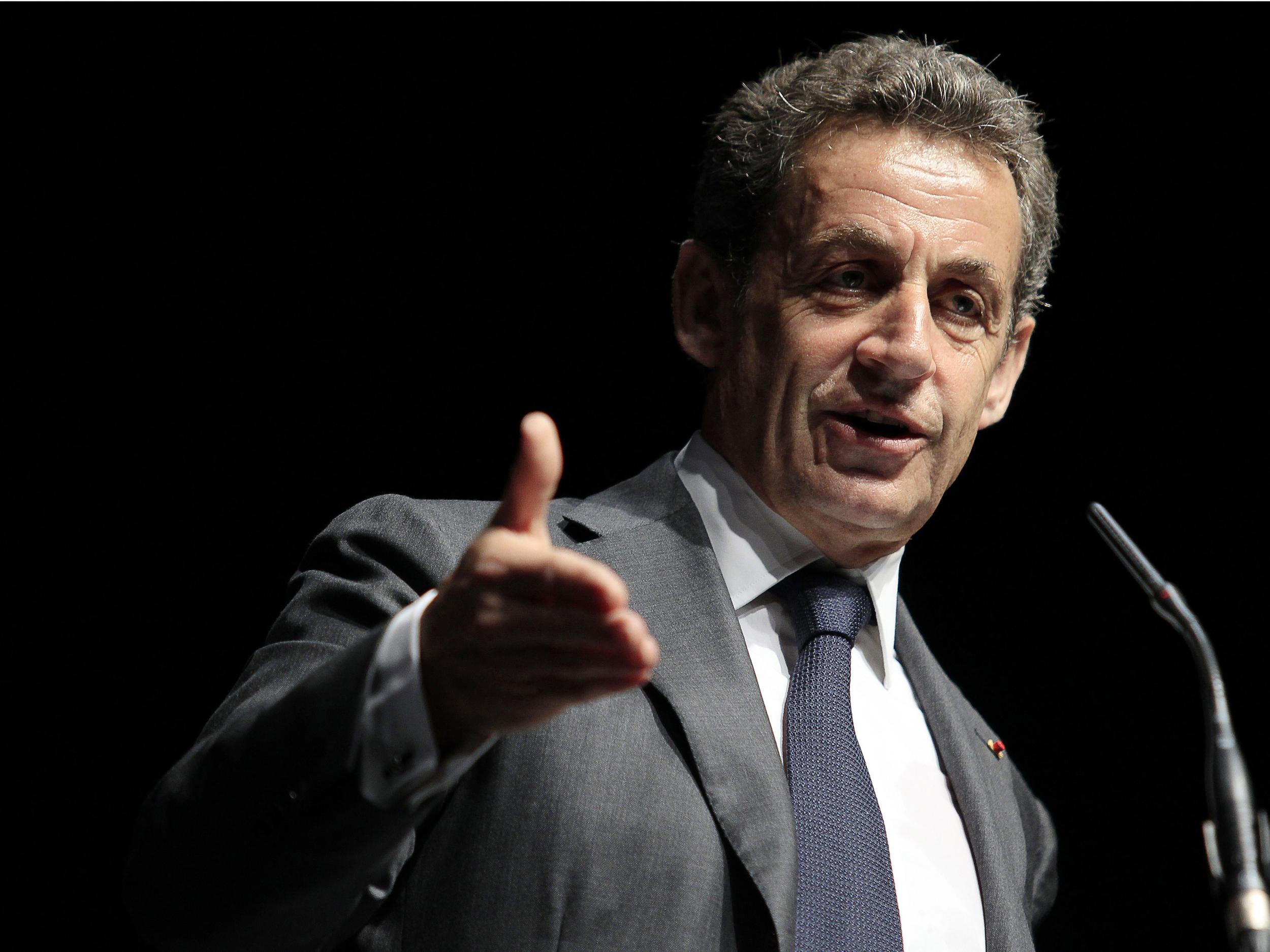Nicolas Sarkozy 'should stand trial' over 2012 election spending allegations
Ex-French president, who intends to run for office again in 2017

A French prosecutor has requested that former president Nicolas Sarkozy – now campaigning for a second term – be sent to trial over suspected illegal overspending on his failed 2012 re-election campaign.
The Paris prosecutor's office said on Monday it has asked investigating judges to send Mr Sarkozy and 13 others to court in the criminal case. It is now up to the judges to decide whether Mr Sarkozy must stand trial.
Two weeks ago, the conservative leader made headlines when he announced his decision to be a candidate in the 2017 presidential election in a book that immediately became a best-seller in France.
Legally, nothing prevents him from seeking office. He faces a primary in November against an array of other conservative candidates.
His name has surfaced in several legal cases in recent years, yet Mr Sarkozy still enjoys high popularity among right-wing voters and is widely considered by political experts as a one of the few serious contenders for the presidency.
Mr Sarkozy has not been convicted of any wrongdoing or gone to trial.
Recent polls show his main competitor in the conservative party, former prime minister Alain Juppe, is still the favourite of the primary but Mr Sarkozy, in second position, is getting closer.
Mr Juppe said on Monday he won't comment on Mr Sarkozy's case. “Accordingly to the code of good conduct that I value very much, I want to refrain myself from making personal attacks”, Mr Juppe said.
Mr Juppe was convicted in 2004 of having taken illegal advantage of public funds – for the benefit of his party – while he was head of the conservative party in the 1990s. He served a 14-month suspended jail sentence and was deprived of the right to run for political office for one year.
Another conservative competitor, Mr Sarkozy's former prime minister Francois Fillon, criticised Mr Sarkozy's situation in a speech few days ago. “Those who don't respect the laws of the republic should not be allowed to run. There's no point in talking about authority when one's not beyond reproach. Who can imagine for a moment general De Gaulle being under criminal investigation?” Fillon said.
Mr Sarkozy's lawyer, Thierry Herzog, denounced the prosecutor's request as “gross political manoeuvering”. He noted that the move falls on the day the trial opened for Jerome Cahuzac, a former budget minister under Socialist President Francois Hollande forced to resign and charged with allegedly hiding part of his wealth in overseas tax havens.
The lawyer noted that Mr Sarkozy had already personally paid a financial penalty of €363,615 (£304,502) for breaching campaign spending ceilings in 2012. Funding irregularities carry a penalty of up to one year in prison and a fine of €3,750. Several people close to Mr Sarkozy are among those requested to stand trial in the case.
If the investigating judges eventually decide to send Mr Sarkozy to court, it is unlikely any trial could be held before the April-May presidential election. If Mr Sarkozy was elected next year, he would be granted immunity as president and would not be able to stand trial in the case before the end of the five-year term.
In February, the judges handed Mr Sarkozy preliminary charges of alleged illegal campaign financing over an invoice system his party and a company named Bygmalion allegedly used to conceal unauthorised overspending.
France had a ceiling on presidential campaign funding in 2012 of €22.5m. The conservative Mr Sarkozy, who was president from 2007 to 2012 and lost that year's election to Mr Hollande, is accused of spending €17m over that limit.
Mr Sarkozy's party was then called UMP but has since renamed itself the Republicans. He quit as party leader when he announced his presidential bid two weeks ago.
“We are absolutely serene about the fact that all this will end up in a dismissed case,” said Daniel Fasquelle, the treasurer of the Republicans. “I'm also surprised that this news is being announced today ... as Nicolas Sarkozy just started his campaign.”
In a separate case, Mr Sarkozy was handed preliminary charges of corruption and influence-peddling based on information gleaned from phone taps about an alleged bid to get information from a judge ahead of a decision. Preliminary charges mean magistrates have strong reason to believe a crime was committed but give them more time to investigate before deciding whether to send suspects to trial.
Associated Press
Join our commenting forum
Join thought-provoking conversations, follow other Independent readers and see their replies
Comments
Bookmark popover
Removed from bookmarks